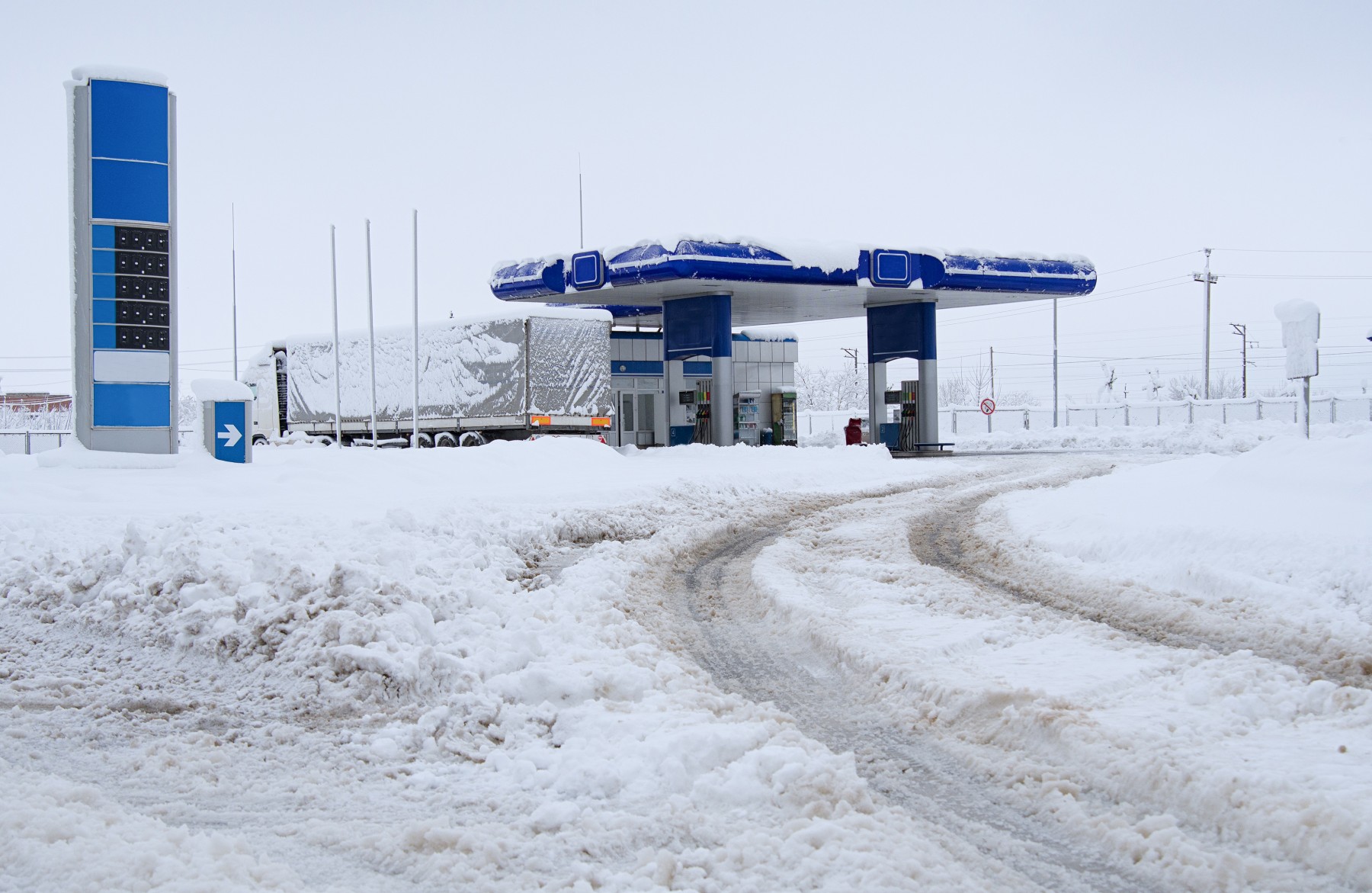Winter presents unique challenges for businesses operating across automotive, infrastructure, and energy sectors. The combination of cold temperatures, precipitation, and reduced daylight creates complex safety considerations that affect workers, equipment, and operations. Understanding these challenges helps businesses maintain safety and efficiency throughout the winter season.
Understanding Cold Weather Impact on Operations
Cold weather fundamentally changes how both people and equipment function. When temperatures drop, metal becomes more brittle, lubricants thicken, and batteries lose efficiency. For automotive repair shops, this means adjusting diagnostic approaches and repair procedures. For fuel stations, it requires special attention to fuel storage and dispensing systems. Road maintenance crews must consider how materials behave differently in cold conditions, while fleet operators need to account for increased vehicle strain.
The Science Behind Cold Weather Challenges
Understanding the physics of cold weather helps explain why winter operations require different approaches. For example, automotive fluids become more viscous as temperatures drop, affecting everything from engine oil to hydraulic systems in maintenance equipment. This viscosity change means that equipment needs longer warm-up times and may require different maintenance intervals. In fuel operations, cold temperatures can cause condensation in storage tanks, making regular monitoring and water removal essential for maintaining fuel quality.
Worker Safety in External Operations
Protecting workers in cold conditions requires understanding how the human body responds to cold stress. The body diverts blood flow from extremities to protect core temperature, which can lead to decreased dexterity and slower reaction times. This physiological response affects everyone from mechanics working on vehicles to fuel delivery personnel and road maintenance crews.
Creating Effective Cold Weather Work Protocols
Successful cold weather operations depend on smart work scheduling and appropriate protective measures. For instance, automotive repair shops might need to adjust service scheduling to allow for longer warm-up periods between moving vehicles in and out of heated work areas. Fuel delivery operations might need to modify delivery schedules to account for slower pumping times and increased safety checks. Road maintenance crews require careful task rotation to prevent extended cold exposure while maintaining necessary service levels.
Equipment and Facility Considerations
Winter operations demand specific approaches to equipment maintenance and facility management. Auto repair facilities need to maintain proper bay temperatures while managing increased ventilation demands from running vehicles. Fuel stations must protect dispensing equipment from freezing while ensuring safe customer access. Road maintenance facilities need to maintain equipment readiness while protecting sensitive materials from freezing.
Climate Control and Safety Systems
Modern facilities often feature complex heating and ventilation systems that require special attention during winter operations. Auto repair shops must balance heating requirements with ventilation needs for vehicle emissions. Fuel stations need to protect electronic dispensing systems while maintaining safe operation in all weather conditions. Infrastructure maintenance facilities must ensure equipment storage areas maintain appropriate temperatures to prevent damage and ensure rapid deployment when needed.
Specialized Winter Maintenance Procedures
Each sector requires specific winter maintenance protocols to maintain safe, efficient operations. For automotive businesses, this includes specialized diagnostic procedures that account for cold weather effects on vehicle systems. Fuel operations need regular checking of water accumulation in storage systems and verification of heating systems for proper fuel flow. Road maintenance operations require careful material storage and equipment preparation to ensure effective response to winter conditions.
Preventive Maintenance Strategies
Winter operations benefit from proactive maintenance approaches. This might include increased inspection frequencies for critical systems, regular testing of emergency equipment, and maintaining detailed records of cold weather performance issues. Such data helps identify potential problems before they affect operations and supports continuous improvement of winter protocols.
Emergency Response and Business Continuity
Winter conditions can quickly create emergency situations that affect multiple business sectors simultaneously. A comprehensive emergency response plan considers how different businesses interconnect and depend on each other’s services. For example, a fuel delivery issue might affect both automotive operations and road maintenance capabilities.
Developing Robust Response Plans
Effective emergency response plans account for winter-specific challenges while maintaining flexibility to address unexpected situations. This includes maintaining emergency equipment in ready condition, establishing clear communication protocols, and ensuring all personnel understand their roles during winter-related emergencies.
Infrastructure and Access Management
Safe winter operations require careful attention to infrastructure maintenance and access management. This affects everything from customer access to automotive service centers to fuel station operations and maintenance facility accessibility. Understanding how winter conditions affect different surface materials and drainage systems helps maintain safe operations while preventing property damage.
Surface Treatment and Maintenance
Different surfaces require different winter treatment approaches. Concrete surfaces common in automotive repair facilities need careful ice management to prevent damage from freeze-thaw cycles. Fuel station forecourts require special attention to prevent ice formation around dispensing areas. Road maintenance facilities need to maintain safe access while managing snow storage to prevent operational interference.
Technology and Communication Systems
Modern winter operations increasingly rely on advanced technology for everything from diagnostic systems in automotive repair to fuel management systems and road maintenance tracking. These systems require special consideration in winter conditions, including protection from cold damage and ensuring reliable operation in adverse weather.
Maintaining Critical Systems
Business continuity depends on maintaining functional communication and control systems throughout winter conditions. This includes protecting sensitive electronic equipment, maintaining backup power systems, and ensuring all weather monitoring and response systems function reliably in cold conditions.
Building Comprehensive Winter Safety Programs
Creating effective winter safety programs requires understanding how cold weather affects different aspects of business operations while recognizing the interconnected nature of automotive, infrastructure, and energy sectors. Success comes from developing protocols that address both sector-specific challenges and shared winter safety concerns.
Regular review and updating of these protocols ensures they remain relevant as technology evolves and operational requirements change. This comprehensive approach helps businesses maintain safe, efficient operations throughout the winter season while protecting workers, equipment, and facilities.
Recent Posts
UPDATED: Direct and Indirect Costs of Workplace Injury: Hidden Dollars Matter More Than You Think
When a workplace injury happens, everyone sees the obvious costs: the claim, the medical bills, maybe some time off. What most employers underestimate are the indirect and [...]
Focusing on the Long Haul: A Practical Guide to Driver Ergonomics and Injury Prevention
For professional drivers, the "office" isn't a cubicle, it’s the cab of a truck. While most safety discussions focus on what happens on the road, [...]
Beyond the Card: Why Patient Advocacy is the Missing Link in Your Healthcare Strategy
We’ve all been there. You’re at the pharmacy or the doctor’s office, you hand over your insurance card, and then you wait. You wait for [...]




